According to the report of the People's Committee of Le Thuy district ( Quang Binh ), the North-South expressway component projects passing through the district have a total length of nearly 32km.
The project's land area is over 265 hectares, with 926 households and 8 organizations affected. The total land area that needs to be converted to serve the project is over 257 hectares.
Up to this point, there are still about 490m of land clearance that have not been completed in the district (of which, Le Ninh town has not completed the clearance with 6 households, Phu Thuy commune has 14 households, Truong Thuy commune has 1 household and 1 organization).
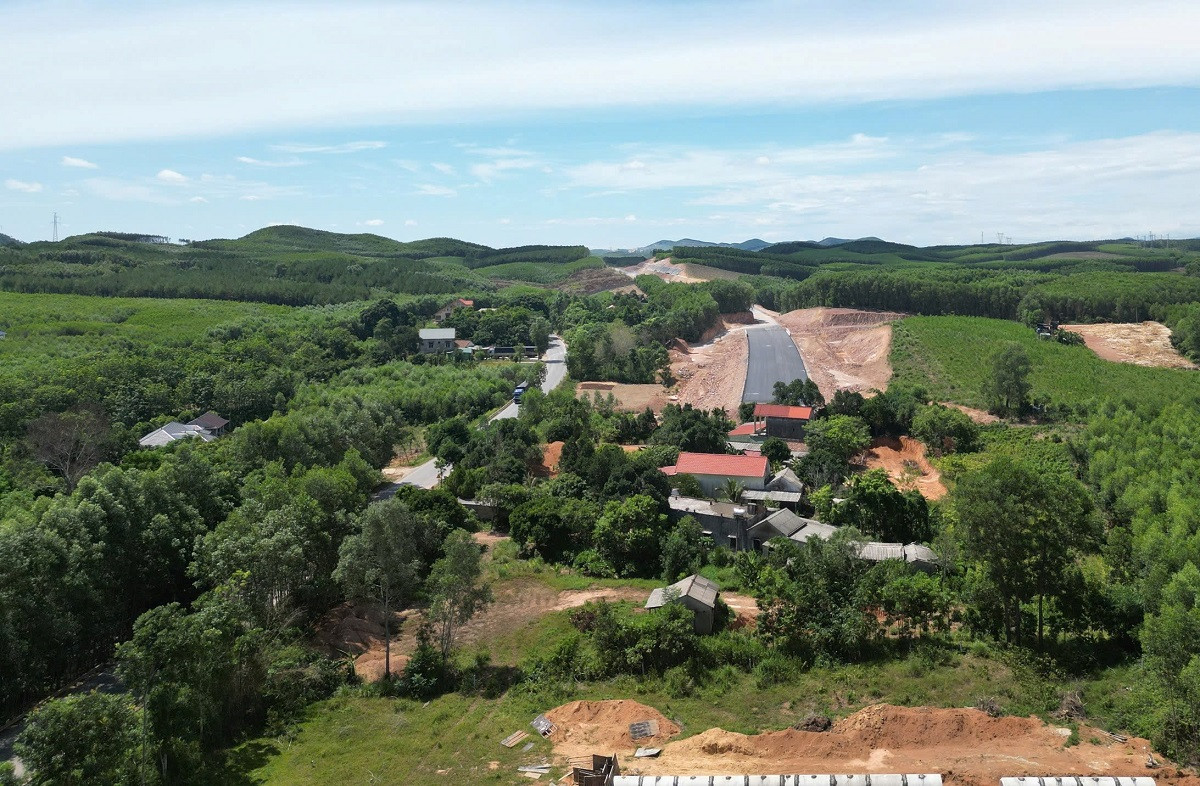
The reason why many households have not yet handed over their houses and land is because they do not agree with the compensation plan for land price, land type, and do not agree with the location of the resettlement area.
Mr. Tran Van Hung's family in residential group 3 (Le Ninh town) is living on a plot of land with an area of about 1,500 square meters. Many years ago, when his 3 children started their own families, Mr. Hung let his children build a house next to where he and his wife were living. However, the land use right certificate is still only in Mr. Hung's name.
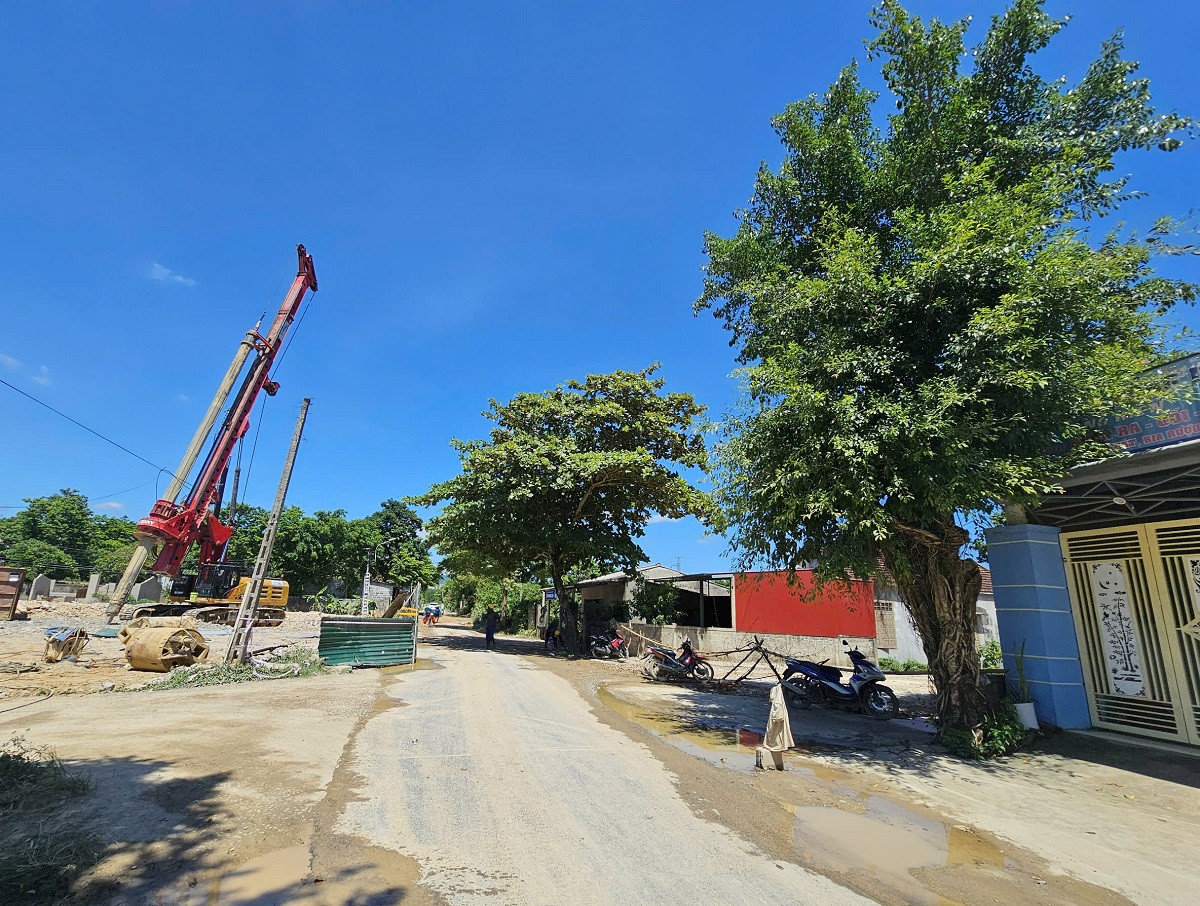
Because Mr. Hung’s house is located right on the main route of the North-South Expressway, he was compensated 9 billion VND and a plot of land in the resettlement area. Mr. Hung’s 3 children were also given 3 plots of land but had to pay land use fees. However, his family did not agree.
According to Mr. Nguyen Xuan Tuong, Head of the Department of Natural Resources and Environment of Le Thuy district, Mr. Hung's family wants to apply the resettlement policy for his 3 children, not the land allocation policy with land use fee collection. They want to be resettled along the same road, not in the town's resettlement area.
“My children are all self-employed, the house here has a street frontage for business, but the resettlement area has a road in an alley so we have no way to make a living. I want to apply for resettlement policy for my 3 children because the land I gave them to build a house on was a long time ago, not after 1993.
The compensation is not enough to buy land, let alone build a house, so my family does not agree to move. I want to use the land on the roadside of Le Ninh Primary School so that we can stabilize our lives," said Mr. Hung.
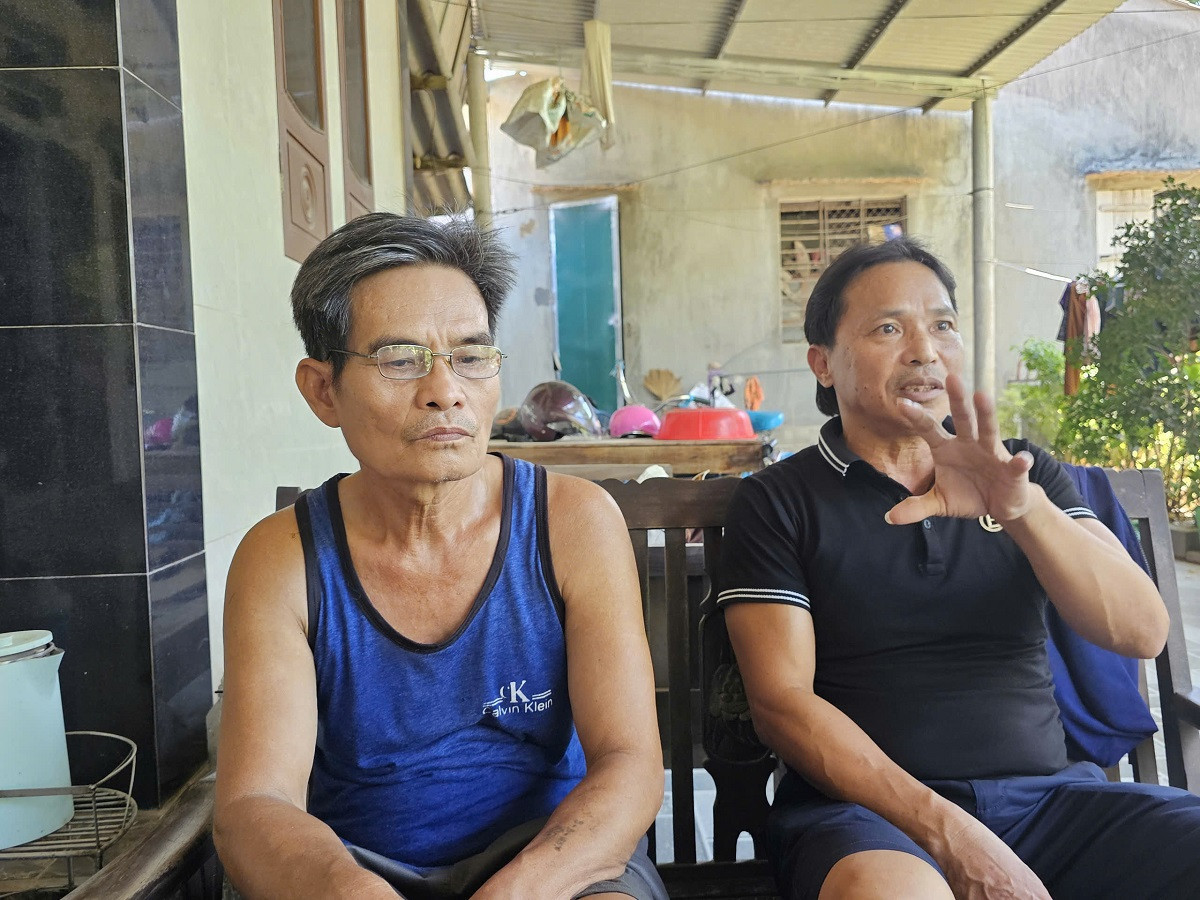
Regarding this issue, speaking with VietNamNet reporter, Mr. Dang Dai Tinh, Chairman of Le Thuy District People's Committee said: "According to the principle, when building resettlement areas, the infrastructure must be synchronous and modern to meet the living needs of the people as good as or better. Currently, in Le Ninh town, the district has only built one concentrated resettlement area and there is no other land to give to households.
As for the request to settle on the side of the Le Ninh Primary School road, it is not allowed. Because, if the resettlement area is divided into small areas of each village like that, it will not meet the requirements of modern synchronization, electricity, water, fire prevention and fighting...
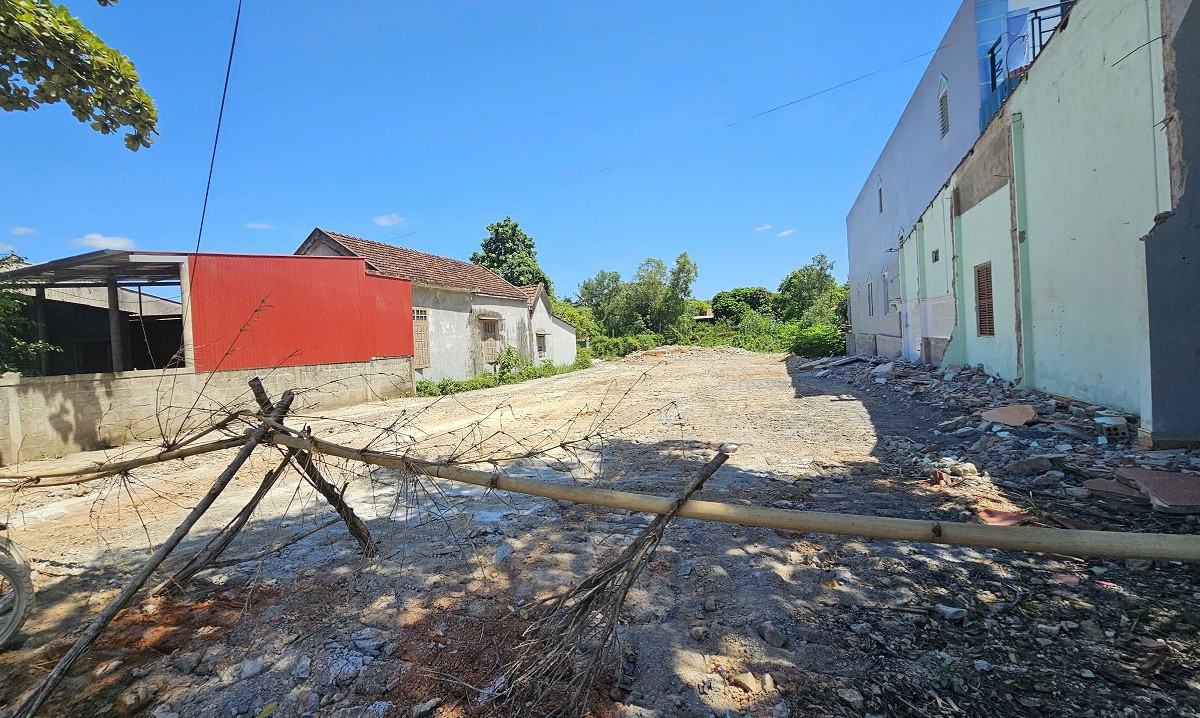
Not only Mr. Hung's household but also Mrs. Chau Thi Duoc's household (in Phu Thuy commune) have not agreed with the compensation price so they have not handed over the land. The locality has announced the receipt of compensation for land clearance 3 times, organized 3 dialogue sessions, however, Mrs. Duoc's family and 3 children only attended 1 session so Le Thuy district has completed the procedures to carry out enforcement.
In addition to the above households, there is another organization that has not agreed to relocate, which is the solar power farm in Truong Thuy commune. This enterprise does not agree with the compensation price. They believe that the compensation amount is not enough to compensate for the contract with the power unit due to the reduction in electricity output. The enterprise recommends that the locality has a mechanism to install replacement for the area that must be dismantled and support working with the power company to maintain the signed contract.
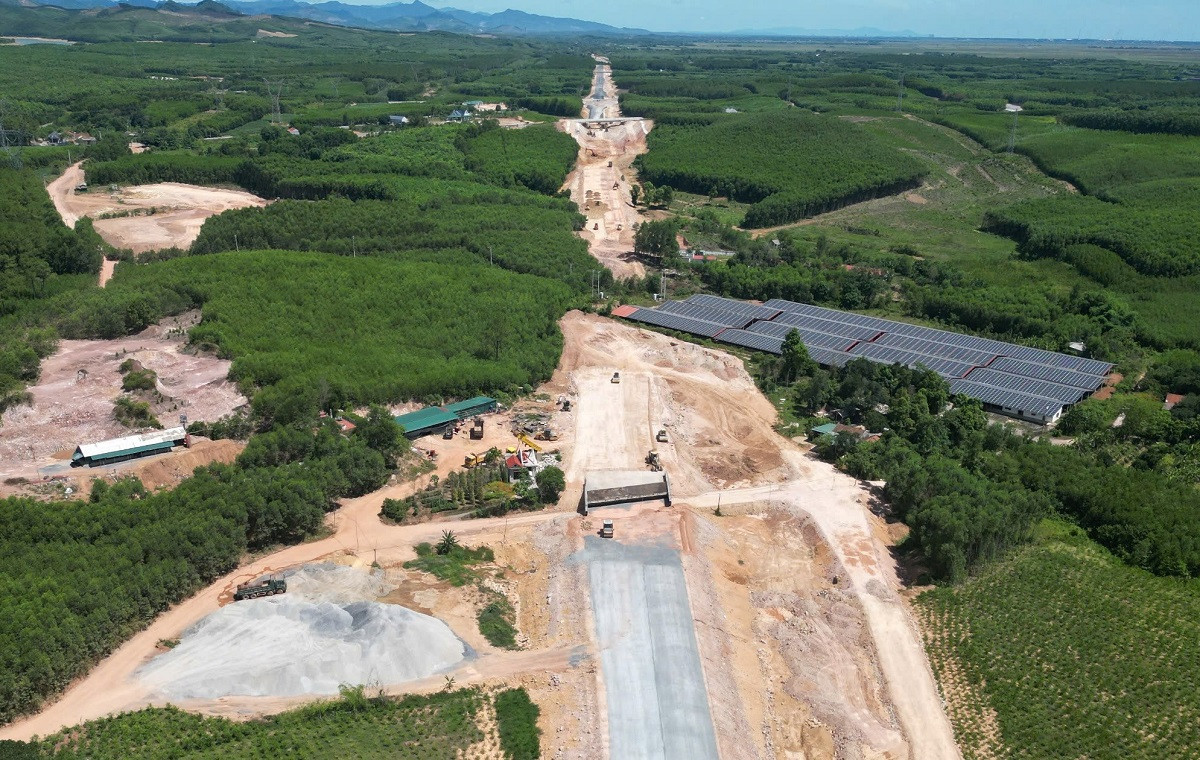
The district has made a plan for enforcement.
According to records, on the main route of the Van Ninh - Cam Lo component project, many locations have been paved with hot asphalt concrete, and the median strip and guardrail systems have been installed. However, on the section passing through Le Thuy district, there are still many houses blocking the route, making access for construction very difficult.
Mr. Luu Tuan ( Ho Chi Minh Road Project Management Board), investor of the Van Ninh - Cam Lo component project through Le Thuy district, said that wherever the locality hands over the site, the unit will mobilize human and material resources to ensure construction progress.
“We are very anxious because there are still many houses and power lines blocking the main route… The rainy season is coming soon, if the land is not handed over to build the roadbed, the project is at risk of falling behind schedule,” Mr. Tuan informed.
Meanwhile, Mr. Dang Dai Tinh, Chairman of Le Thuy District People's Committee added: "After the unsuccessful campaign, the district has come up with a plan to enforce the project so that it can be implemented smoothly."
Source: https://vietnamnet.vn/nguy-co-vo-tien-do-cao-toc-doan-qua-quang-binh-2310409.html







































Comment (0)